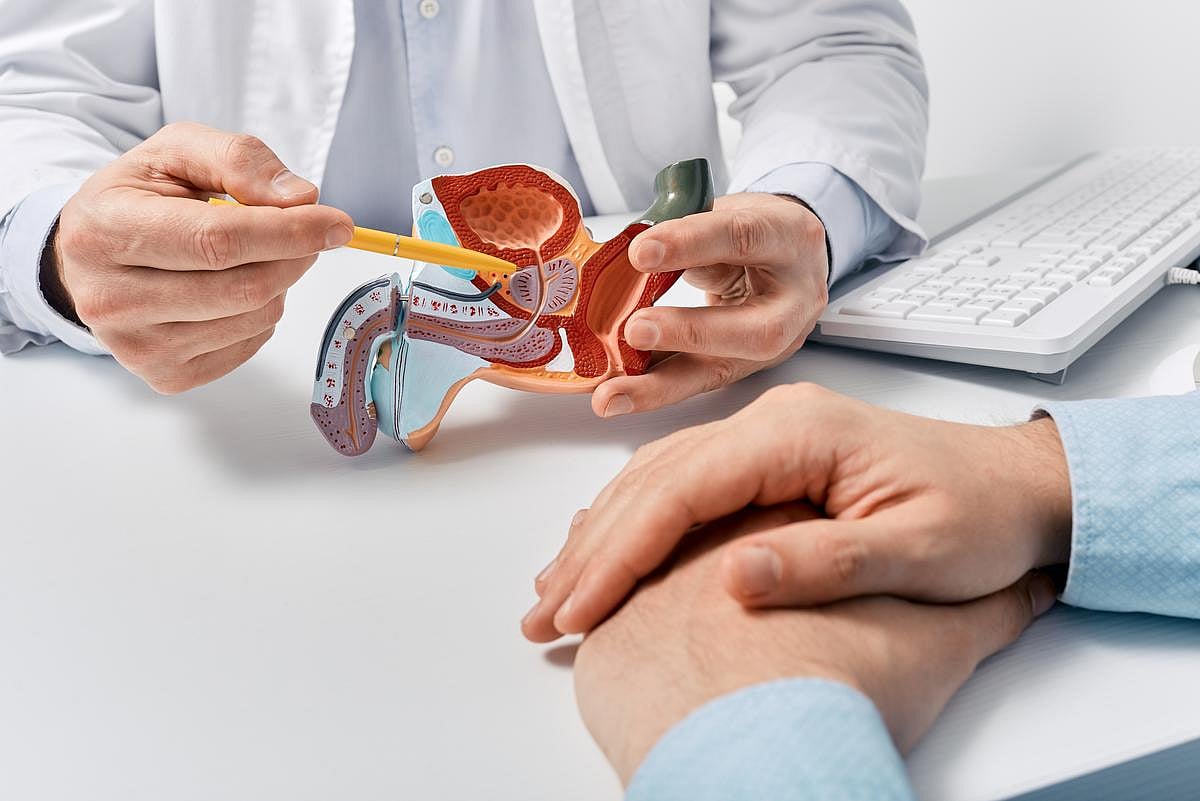Acute genitourinary, GI toxicity linked to late genitourinary or GI toxicity and decrement in urinary or bowel quality of life
By Elana Gotkine HealthDay Reporter
WEDNESDAY, Feb. 12, 2025 (HealthDay News) — For patients undergoing prostate radiotherapy, acute toxicity is associated with late toxicity and decrement in quality of life, according to a study published online Jan. 30 in The Lancet Oncology.
John Nikitas, M.D., from the University of California, Los Angeles, and colleagues characterized the relationship between acute and late genitourinary and gastrointestinal toxicity among patients receiving conventionally fractionated or moderately hypofractionated prostate radiotherapy in an individual patient data meta-analysis of randomized phase 3 trials. Six trials, with 6,593 patients (4,248 conventionally fractionated; 2,345 moderately hypofractionated), met all eligibility criteria.
Patients were followed for a median of 72 months. The researchers found an association for acute grade 2 or greater genitourinary toxicity with both late grade 2 or greater genitourinary toxicity and decrement at least twice the minimal clinically important difference (MCID) in urinary quality of life (odds ratios, 2.20 and 1.41, respectively). There was also an association for acute grade 2 or greater gastrointestinal toxicity with both late grade 2 or greater gastrointestinal toxicity and decrement at least twice the MCID in bowel quality of life (odds ratios, 2.53 and 1.52, respectively).
“Further prospective studies are needed to evaluate whether strategies that mitigate the risk of acute toxicity lead to reduced rates of late toxicity and whether early interventions to treat acute toxicity impact rates of late toxicity,” the authors write.
Several authors disclosed ties to the pharmaceutical industry.
Stay up to date on the latest in health — Click here to subscribe to our weekly newsletter!
Copyright © 2025 HealthDay. All rights reserved.








